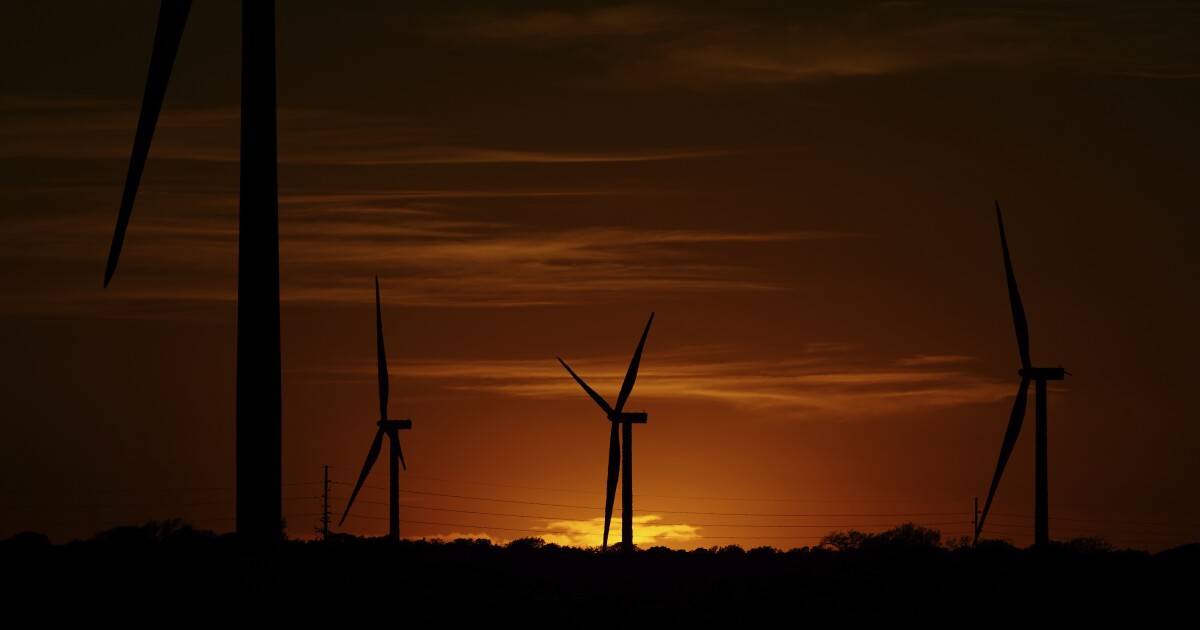

Texas Republican House lawmakers voted Monday to approve legislation boosting coal and natural gas power to increase grid reliability, legislation critics argue will hurt the state’s leading renewable energy sector and drive up consumer costs.
SB 7, which cleared the House on Monday evening in a 119-21 vote, is aimed at paying incumbent generators on the Texas grid more money so long as they can guarantee so-called dispatchable sources of energy, such as natural gas or other fossil fuels.
HERE’S HOW LONG EVS HAVE TO BE DRIVEN BEFORE THEY SAVE EMISSIONS VERSUS GAS CARS
An earlier version of the legislation cleared the Texas Senate last month, but the version that advanced in the House was amended slightly. Now, the two chambers must iron out the final details and come to an agreement before it can advance to the desk of Gov. Greg Abbott (R-TX) for signature.
Proponents say the legislation will increase reliability by rewarding power sources that can come online within two hours and run for at least four hours. The legislation is part of a Republican-led effort in the state to add additional gas-powered generation to the grid following Winter Storm Uri, the 2021 storm that caused 4.5 million Texans to lose power and resulted in 246 deaths.
Texas Lt. Gov. Dan Patrick, who presides over the Senate, has led the charge for adding more gas-fired generation. “We have to level the playing field so that we attract investment in natural gas plants,” Patrick told reporters last fall, saying he could not imagine ending the session without a “guarantee” that more natural gas plants would be built. “We can’t leave here next spring unless we have a plan for more natural gas power,” he said.
Critics have said the legislation, if passed, would move energy markets in the wrong direction.
Last year, Texas generated 180,145 gigawatt-hours of electricity from carbon-free sources, according to the Energy Information Administration, by far the highest source of carbon-free energy in the country. California, by comparison, had just 124,055 gigawatt-hours of carbon-free generation, which includes nuclear and renewable sources.
It’s also the leader in gas- and coal-fired generation. And the failure of natural gas production, storage, and distribution facilities was one of the major reasons the Texas grid operator, the Electric Reliability Council of Texas, or ERCOT, had problems during Uri.
The Federal Energy Regulatory Commission and North American Electric Reliability Corporation said in a November 2021 joint analysis of the disaster that 58% of the plants that failed or struggled during Uri were natural gas-fired.
A coalition of industry, consumer, and environmental groups outlined their concerns about the pending legislation in a letter sent in March to the chairman of the state Senate’s Business and Commerce Committee.
CLICK HERE TO READ MORE FROM THE WASHINGTON EXAMINER
The group called for Texas lawmakers to eliminate the grid “firming” obligations, or provisions that require renewable plants to add a backup source of power, from its proposals to allow for nondiscriminatory technology-neutral products and services to be added to the grid and to consider all factors that can cause reliability concerns when sizing a product or service on the grid.
“We believe, if incorporated, these consumer-focused and market-driven principles will increase both the reliability and affordability of energy in ERCOT,” the Advanced Power Alliance, the Texas Solar Power Association, American Clean Power Association, Solar Energy Industries Association, and Conservative Texans for Energy Innovation said in the letter.





